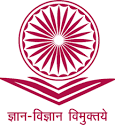Master of Library and Information Sciences
About Program
The Master of Library and Information Sciences (MLIS) is a 1-year or 2-year postgraduate degree program (depending on the university) focused on advanced study in the field of library management, information science, and digital knowledge systems. It builds on the fundamentals of cataloguing, classification, reference services, digital libraries, research methodology, and the use of ICT in library systems.\\r\\n\\r\\nMLIS trains students to become library professionals, information specialists, digital archivists, and knowledge managers, capable of handling both traditional and modern information systems in the digital age.
Master of Library and Information Sciences Program Accreditations:

